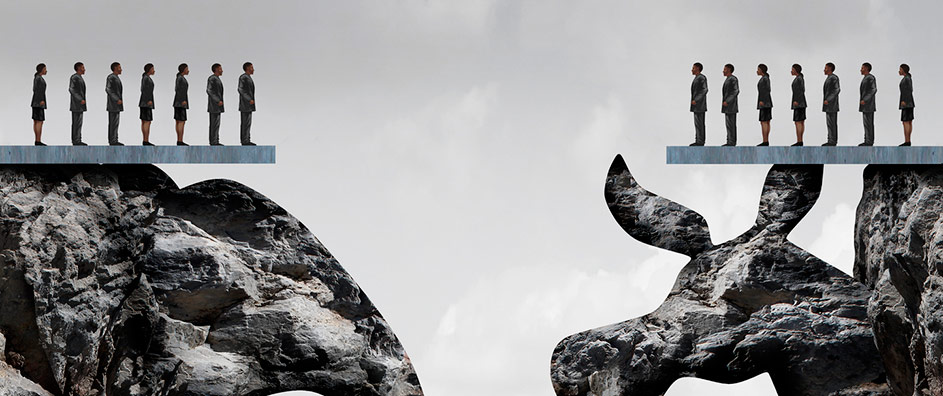The discourse surrounding elites and populists has become a defining feature of contemporary society. This dichotomy invokes a myriad of emotions and responses, leading to polarized perspectives that often threaten social cohesion. The Bahá’í teachings, which advocate for unity, equality, and the elimination of prejudices, present a unique lens through which to scrutinize this increasingly divisive narrative. By exploring the fundamental principles of Bahá’í thought, one can gain invaluable insights into how to transcend the artificial chasms formed by class distinctions and ideological divisions.
At its core, the Bahá’í Faith espouses the oneness of humanity. This principle serves as a profound reminder that regardless of socio-economic status, ethnicity, or belief system, every individual possesses an intrinsic worth. In a world increasingly characterized by the rhetoric of division, this tenet provides a pivotal foundation for fostering empathy and understanding. It invites the question: how can we navigate the complexities of elite and populist dynamics without succumbing to divisive narratives?
To engage with the topic effectively, it is essential first to explore the nature of the elite and populist paradigms. Elites often represent the established, powerful factions in society. They typically wield influence through economic resources, education, and political connections. Conversely, populists are frequently portrayed as champions of the common people, advocating for the concerns of those who feel marginalized or ignored by the ruling class. This binary framing simplifies a convoluted reality and overlooks the myriad of voices that comprise any social spectrum.
The Bahá’í teachings encourage a critical examination of these constructs. Rather than acquiescing to the divisive rhetoric that positions one group against the other, these teachings advocate for a more nuanced understanding of each cohort. By recognizing that individuals within both categories can possess altruistic intentions, the Bahá’í perspective fosters dialogue rather than discord. This approach is integral in dismantling the antagonism that often accompanies elite-populist discussions.
In recent years, populism has emerged as a powerful force in political landscapes worldwide. While it seeks to amplify the voices of the disenchanted, it can also inadvertently perpetuate a simplistic view of societal divides. Bahá’í teachings assert that the solution lies not in vilifying the elite but rather in addressing the systemic inequities that fuel discontent. This calls for collaborative action aimed at creating structures that empower every individual—effectively democratizing access to opportunities and resources.
Moreover, the scriptural call for justice in Bahá’í texts underscores the necessity for transparency and accountability, both for the elites and the general populace. A society ingrained in these principles can overcome the suspicions that often accompany claims from either side. Encouraging open dialogues about societal issues can facilitate solutions rooted in collective welfare, rather than in factional disputes.
Equally important is the role of education in bridging the gaps created by elite-populist divides. The Bahá’í teachings emphasize the power of education as a transformative tool for both individual and collective development. By ensuring that educational opportunities are equitably distributed, societies can cultivate informed citizens capable of critical thinking and empathy. This is particularly pertinent in today’s rapidly changing world, where misinformation can exacerbate tensions. Education can serve as the antidote to ignorance, fostering a climate of understanding instead of distrust.
Another critical aspect of the Bahá’í approach to the elite-populist narrative is the challenge to cultural prejudices. Prejudices—whether based on social class, ethnicity, or ideology—serve as the acrimonious glue that binds divisions. The elimination of prejudices is not merely an aspirational goal within Bahá’í teachings; it is an actionable principle. Addressing prejudices necessitates introspection and a willingness to confront uncomfortable truths. By fostering inclusivity and embracing diverse viewpoints, societies can mitigate the negative ramifications of societal bifurcation.
Furthermore, the Bahá’í commitment to service underscores the importance of community engagement as a means of transcending elitist versus populist rhetoric. Service fosters unity by focusing individuals on common goals and collective endeavors. Initiatives that encourage individuals from various backgrounds to collaborate can help dismantle preconceived notions and foster genuine connections. This pursuit of collective action reflects Bahá’í aspirations for a world characterized by mutual support and cooperation rather than isolation and animosity.
Ultimately, the dialogue surrounding elites and populists must evolve beyond dualistic thinking. Embracing the Bahá’í perspective offers a pathway toward a more inclusive and harmonious society. By prioritizing unity, justice, education, and service, it becomes possible to foster a nuanced understanding that transcends superficial classifications based on power dynamics.
The time has come to shift perspectives. Instead of viewing elites and populists as opposing factions, consider them as parts of a whole. Each group possesses critical insights and potential contributions to the betterment of society. Through conscious efforts to understand and collaborate, humanity can move toward a brighter, more equitable future—beyond the confines of division and towards the realization of oneness.
